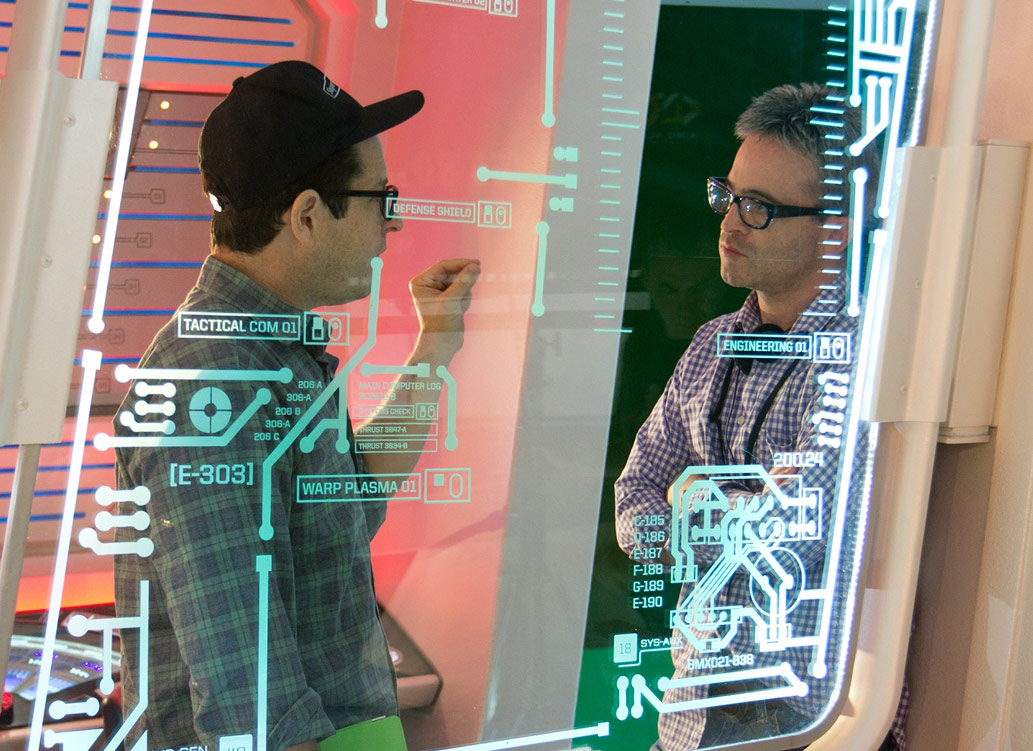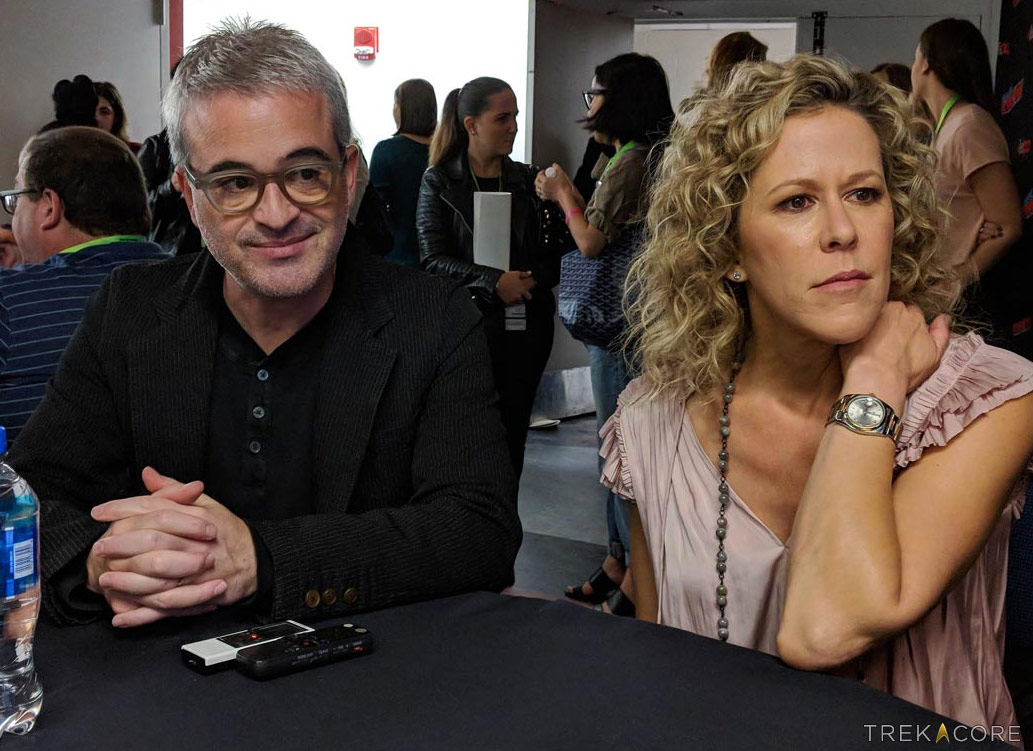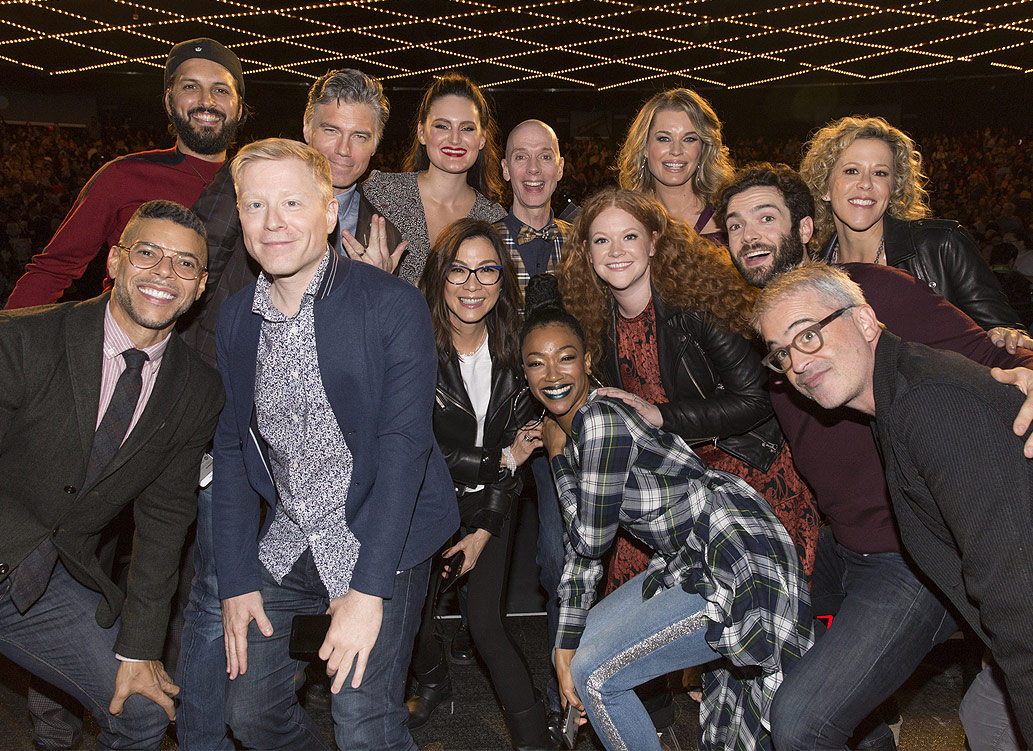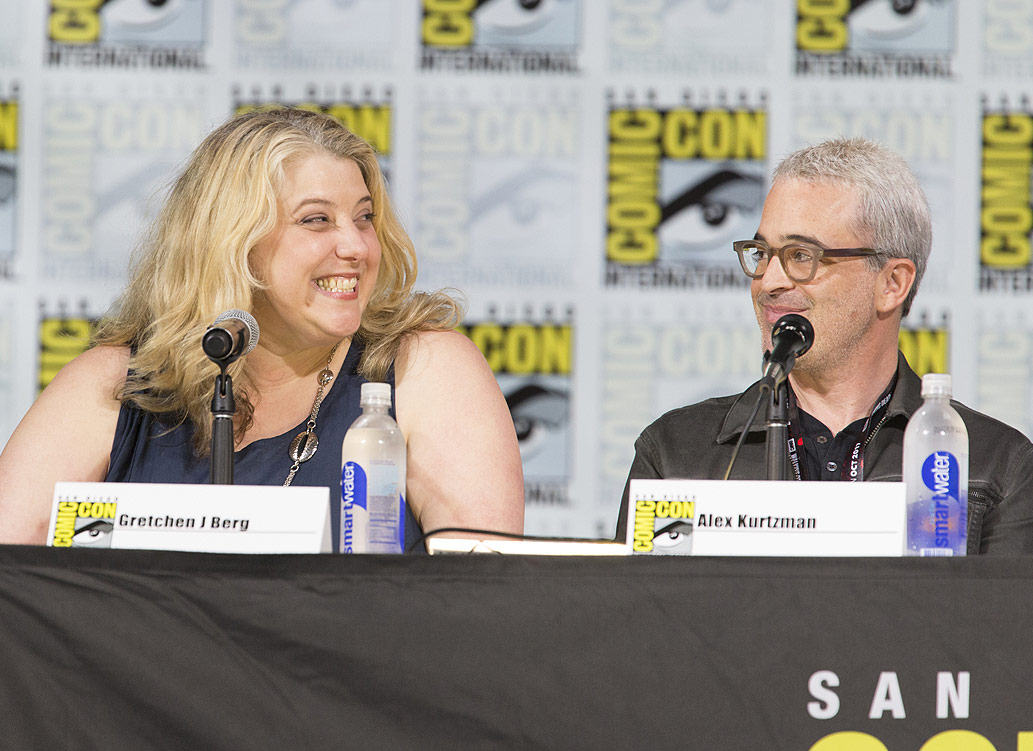In a lengthy, wide-ranging interview released today, Star Trek: Discovery showrunner Alex Kurtzman talked about how he’s come to embrace the Star Trek universe, his place as franchise leader, and how future Trek development will continue to evolve going forward.
Speaking in a thirty-minute podcast interview with Variety published today, Kurtzman spent a lot of time talking about his new role as “the Star Trek guy” at CBS, which became official in mid-2018 after signing a hefty five-year contract with the studio to lead Trek into the next generation of programming.

As most Trek fans know, Kurtzman joined the franchise with the Kelvin Timeline Star Trek films, the first two of which he co-wrote with former writing partner Roberto Orci. While the writer/producer admits he wasn’t as in tune with Trek as some people were when he was growing up, he spoke at length about how the last decade of Trek — and especially the last three years working on Discovery — have influenced his outlook on storytelling.
When I was doing the films, I loved the world of “Trek” — but I will admit that when I grew up, I was more of a “Star Wars” guy. I loved “Trek,” I loved “The Wrath of Khan,” I loved [the Original Series], but wasn’t the same experience for me as a kid.
[…]
[Over the last three years,] I found myself connecting [to “Trek”] more and more at a time where I saw the world changing. And for the first time, despite the experience that I had on the [Kelvin] films, I began to feel like “Star Trek” was more necessary than ever — whereas “Star Wars” was about a galaxy far far away, “Star Trek” is about the best of what we can become.
Right now, we need to know that. Right now, more than ever, we need to know that it’s possible for us to, as the Vulcans say, live in a world of infinite diversity in infinite combinations, and that our best selves will emerge — and that there is hope for a crew like “Discovery,” and a future [like that] can exist.

As his time developing the first season of Discovery progressed, Kurtzman found himself drawn deeper into the Trek universe, to the point where it became his career focus.
Suddenly, it became a mission, where I was like, “I don’t want to do anything that isn’t meaningful anymore. I don’t want to do anything that isn’t about putting a message into the world that’s necessary and positive.” And I fell in love with “Trek” in a totally different way.
I had already loved it, but it suddenly became the only thing I wanted to do, and the only story I wanted to tell. I think I’ve just come to a place in my life now, where if it doesn’t have ‘nutritional value’ — meaning, if it doesn’t have something important to say [about] the state of the world and who we are as people — I don’t care.
[This is] a wonderful job that I was lucky to get, with a lot of other people who are so talented, and frankly knew more than I did – much more! But now, it’s different. Now, I feel like I can authentically call myself a — Trekkie? Trekker? I guess you have to pick your definition of that.
But because I’ve so fallen in love with the world and kind of claimed my place in it in a different way, I think it’s opened up to me in a way that’s just different than it used to be for me.

Kurtzman also spoke with more detail as to his vision for expanding Star Trek into different television arenas, the most recent of which will be a kid-focused animated series currently in development. He emphasized the need for new Trek shows to be very different from each other, citing 1990s-era series Deep Space Nine and Voyager as examples of shows being too similar for casual viewers.
I want to make sure that each [new “Star Trek”] show is a different and unique proposition. I think that “Deep Space Nine” and “Voyager” got into a tricky spot, where people were starting to feel like “I can’t tell the difference between shows,” even though they WERE very different. “I can’t tell the difference so why would I pick one over the other?”
Our job is to make sure that every time you get a “Star Trek” show, it feels like a very different prospect from any other “Trek” show that exists — so that in the same way as in the world of Marvel or Pixar, you have multiple stories coexisting, and yet each one feels different, while there is kind of an assumption and understanding of what the brand identity of that thing is.
Reinvention is the wrong word. It’s not reinvention, but there are different ways to tell stories. I think that one of the things that’s really beautiful about “Star Trek” is that there are interesting offshoots and interesting areas in the world of “Star Trek” and points of view that allow for tremendous variety to the kinds of stories you can tell.
I think it’s because “Trek” is really built on this history and tradition of honoring every character, so being able to shift points of view radically — even when the show’s about main character — to be able to jump to another character’s point of view… it’s the beauty of television, because you have more time but it’s one of the things I think is most satisfying to audiences. They feel like they get a very ‘full meal.’
It’s also challenging me to come up with structural paradigms that are very different. It shouldn’t always feel the same, in how you find the information out. On “Alias,” we used to always air-drop the audience into the middle of the story, the most heightened moment. It would kind of reach a crescendo, we’d hold on a suspended note, and we’d cut to black and jump to ’24 Hours Earlier.’ The episode then became about, “How did we get there?”
That’s a fun structure, and so being able to play with “Trek” in that way, too — so it isn’t just “Here’s a problem, we’re going to go out and solve it.” — but how you mix and match the way you come into a story is great.
I have yet to find a limitation on that with “Trek.” I don’t think there’s a you-can’t-do-that-this-way rule about “Trek.”

The producer also shared some additional comments about his unexpected new job taking over the showrunner position on Star Trek: Discovery Season 2, after the surprise departure of Aaron Harberts and Gretchen Berg, fired for alleged misconduct last year.
My job was always to stay at 30,000ft, at a story level, and to be the person who would always have receptors out to whatever felt right and whatever felt wrong. Without getting into a lot of specifics about what happened in the room, I think that there were issues between the writers, and I really felt strongly that I did not want to go out and look for somebody else.
I’d come to a place where I had fallen deeply in love with the show, and it was incredibly important to me for the staff to be happy, because what we have to do is monumental. You can do hard work, but it’s really hard to do hard work when people are unhappy.
So I said, “I’m going to do this.” I wasn’t planning on being the showrunner this year, but I felt a responsibility to the writers [and] cast [and] show. I had directed the premiere episode, and also felt a deep responsibility to the crew, who we have asked a lot of the crew.
I hold the show to a movie standard, and that means that they’re never doing things like traditional [camera] coverage. There’s nothing easy about the show, so people’s happiness, and their feeling of safety, is tremendously important to me. Just as important as the work.
I guess I just felt it was my responsibility to take and I needed to own it.
In addition to his statements on leading Star Trek into the future on CBS All Access, Kurtzman also retold the story of his experience recruiting Patrick Stewart back to Trek for that upcoming series, and spent a lot of time discussing his thoughts on recasting Star Trek characters for Discovery Season 2 (which we’ll be covering in a follow-up report).
To listen to the whole interview, head over to Variety.
![]()
Star Trek: Discovery returns with the Alex Kurtzman-directed “Brother” on January 17.
